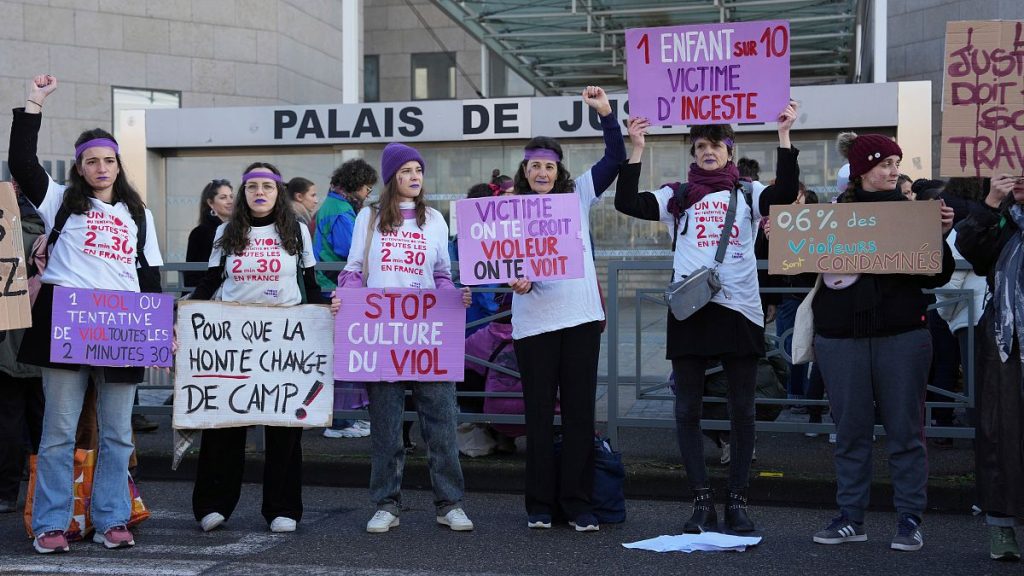The trial of Dominique Pelicot and 50 other men for the systematic rape of his wife, Gisèle, over a decade has concluded with guilty verdicts for all defendants. Pelicot, who received a 20-year sentence, admitted to drugging Gisèle and orchestrating the assaults, often involving men he met online. This horrific case, uncovered after Pelicot was caught filming up women’s skirts, has shocked France and transformed Gisèle into a symbol of feminist resilience. The discovery of over 20,000 photos and videos documenting the abuse led to the identification and arrest of the other perpetrators. The sheer scale of the evidence and the duration of the abuse underscored the depravity of the crimes and the vulnerability of the victim.
The trial, spanning over three months in Avignon, became a focal point for discussions about sexual violence and consent. Gisèle’s courage in facing her abusers and the public scrutiny of the case galvanized activists and prompted calls for legal reforms. Feminist groups organized protests throughout the trial, demonstrating their support for Gisèle and demanding justice. The case resonated far beyond Avignon, sparking international conversations about rape culture and the need for stronger protections for victims. The intense public interest highlighted the significance of the case as a potential turning point in the fight against sexual violence.
The trial revealed disturbing details about the organized nature of the abuse. Dominique Pelicot meticulously documented the assaults, categorizing the files on his computer drives. He drugged Gisèle, rendering her unconscious and vulnerable to his and the other men’s assaults. The sheer number of perpetrators – 72 were identified in the videos, though not all could be apprehended – underscored the systemic nature of the abuse and the complicity of the participants. The scale of the crimes and their documentation exposed a horrifying reality of predatory behavior and the exploitation of a vulnerable individual.
The defense strategies employed by the accused further fueled the debate surrounding consent in French law. Some argued that Dominique Pelicot’s consent implied Gisèle’s consent, a disturbingly common misconception that highlights the need for clearer legal definitions. Others claimed ignorance, suggesting they were misled into believing the encounters were consensual despite the overwhelming evidence to the contrary. Still others attempted to shift the blame entirely onto Pelicot, minimizing their own participation in the assaults. These defense strategies underscored the prevailing societal attitudes that often normalize or excuse sexual violence.
The case has ignited calls for a more explicit definition of consent in French law. Currently, the absence of a clear and unambiguous requirement for consent creates loopholes that allow perpetrators to escape accountability. The trial highlighted the inadequacy of existing legislation and the urgent need for reform to ensure that victims are protected and perpetrators are held responsible. The widespread public outrage generated by the case may finally provide the necessary impetus for legislative change.
The Pelicot case stands as a horrific example of systemic sexual abuse and a pivotal moment in the fight for stricter laws and greater awareness regarding consent and sexual violence. Gisèle Pelicot’s bravery in coming forward has not only brought her abusers to justice but has also ignited a national conversation about the need for stronger legal protections and a societal shift in attitudes towards sexual violence. The trial’s impact extends far beyond the courtroom, serving as a catalyst for change and a testament to the power of survivors’ voices. It is hoped that this case will serve as a turning point in the fight against sexual violence in France and beyond, prompting meaningful reforms and a greater societal understanding of the importance of consent.














